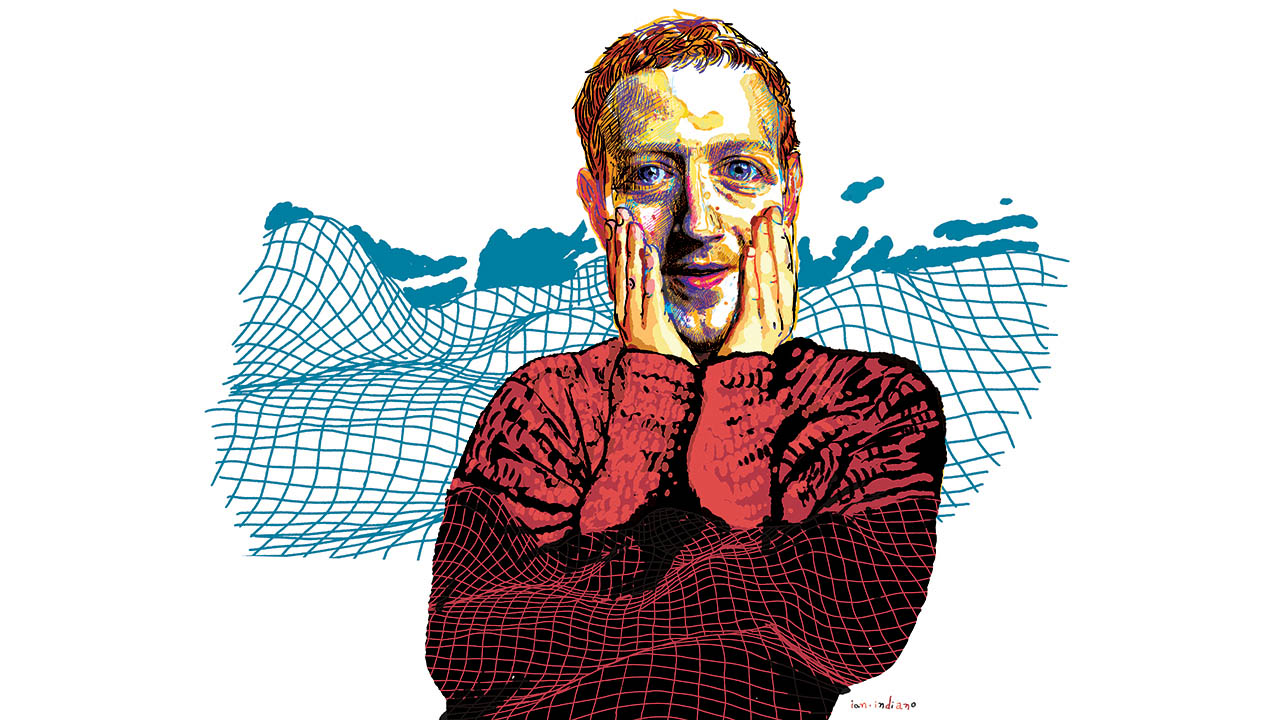Home Alone for Christmas 2: Lost in the Metaverse
 CREDIT: IAN INDIANO
CREDIT: IAN INDIANOAs we slowly watch our society becoming a dystopia we thought was only possible in science fiction, we wonder how this will affect our personal lives.
After more than one year where our traditional social rituals, such as Christmas and New Year’s Eve, were so deeply affected by this unprecedented pandemic, we all felt the vacuum that those social experiences leave when we’re not allowed to celebrate them. Arguably, the traditional side of those rituals only exist to justify some inherent necessity for social interaction. Christmas, for example, is an abstract construction; a celebration whose meaning has changed considerably over the years. But even in a post-pandemic world, those social interactions are still in danger.
As most of us know, Mark Zuckerberg (everyone’s favourite reptilian) has announced that his company, previously known as Facebook, is not only changing its name to Meta, but also openly focusing on bringing the “Metaverse” to life. The Metaverse is a virtual social environment like Second Life, only significantly more immersive. His announcement was received by the world with the kind of concern that already predicts his imminent success. The dangers of such technology are not difficult to imagine, but we also know we’ll be hooked in no time. As we slowly watch our society becoming a dystopia we thought was only possible in science fiction, we wonder how this will affect our personal lives.
The problem here is how we perceive what’s real and what’s virtual. The obvious issue with Metaverse is that this separation becomes increasingly blurred. However, we must understand that the way our society organizes itself is already based on a collection of virtual notions. The way we talk, the way we dress, our views on what is right or wrong, our traditions, what is sacred and what is profane — these are all abstract concepts. And those concepts, precisely because they are abstract, are extremely flexible, even though they might seem immutable.
We fear that virtual reality will be able to reproduce our world so well that we’d rather live a virtual life instead of facing the material world, but this rabbit hole can go much deeper.
With virtual reality, we are not only reproducing a real experience in a virtual environment; instead of replicating the experience of the material world, virtual reality rewrites those experiences, not only presenting an alternative version, but also restructuring our perception of our material experiences.
But this is not a warning of something that might happen if we don’t do something about it. It is merely a description of a very plausible future. In his Metaverse presentation, Zuckerberg said that their plan is to evolve devices for accessing the Metaverse to a point where they are easily affordable. The same thing happened with smartphones. For example, mental health problems related to social media were not a thing before smartphones, but now that we have access to social media 24/7, we are able to fill any idle moment with a few hours of social media use.
Virtual reality presents us with a perfect version of the world, where we don’t need to deal with the bad side of things. Suddenly you don’t need to face the opinions of a distant uncle. You don’t need to eat the terrible meatloaf your mom bakes every year, which you eat only to bring a smile to her face. Even if the ritual only exists to perpetuate false notions of the world, the obligatoriness to show up forces you to deal with the reality of things. It forces you to face opinions you don’t agree with. It forces you to have an actual material experience.
We live in a world where technology cannot be stopped anymore, and things are changing faster and faster. I can’t help but feel a bit nostalgic for something that we haven’t lost yet. Andy Bernard from The Office once said, “I wish there was a way to know you were in the good old days before you actually left them.” I think he was right, and right now we are at the same time in the good old days and in the scary new days. So let’s enjoy it as we can.

















